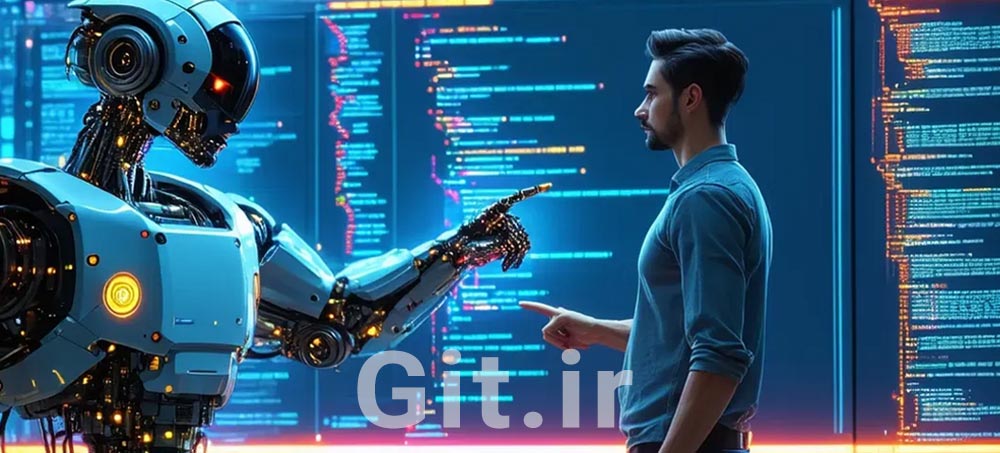Will AI Replace Programmers and Software Engineers?
The rise of artificial intelligence (AI) and generative AI (GenAI) technologies is revolutionizing various industries, including software development. Tools like ChatGPT and Gemini have made tasks such as brainstorming, content creation, and data synthesis more accessible to everyday users. Notably, these AI models are also trained in programming languages such as Python, Java, and C++.

This rapid advancement raises a fundamental question: Will AI replace programmers and software engineers? While AI is transforming how coding jobs function, a complete replacement of human developers remains unlikely in the foreseeable future. In fact, programmers and software engineers play a key role in driving AI innovation itself.
This article delves into AI’s impact on programming, its limitations, and how professionals can future-proof their careers in an AI-driven landscape.
Can AI Fully Replace Programmers?
At present, AI lacks the capability to completely replace programmers and software engineers. Despite its ability to generate code, current GenAI tools have significant limitations, making human expertise in computer science fundamentals and critical thinking indispensable. However, when used alongside human problem-solving skills, AI can enhance efficiency and creativity in software development.
While AI may not eliminate programming roles entirely, it is already reshaping them—especially at entry levels. Developers now rely on AI-powered tools for assistance in coding, debugging, and automation.
The Influence of AI on Software Development
AI is particularly effective at handling repetitive and structured tasks within programming. As large language models (LLMs), GenAI systems predict and generate code based on extensive training data. This allows them to streamline many aspects of software development.
Some of the ways AI is influencing programming roles include:
Automating Routine Tasks: AI can handle repetitive coding tasks, improving efficiency and reducing human workload.
Code Generation and Assistance: AI-powered tools can write code in various languages, provide explanations, and format code with comments.
Bug Detection and Resolution: AI can help identify errors in code and suggest fixes, reducing debugging time.
Project Time Estimation: AI can analyze historical data to forecast project timelines and aid in software project management.
Early-career programmers can leverage AI to accelerate their learning process by seeking explanations for code snippets and experimenting with AI-assisted development.
🔷 Read more: How Can We Speed Up Learning with AI Tools?
▶️ View Course: Automate the Boring Stuff with Python Programming
The Limitations of AI in Programming
Despite its advantages, AI has critical shortcomings that reinforce the need for human involvement in software engineering.
Key limitations include:
Lack of Creativity and Innovation: AI operates based on existing data and cannot independently create novel solutions or think critically.
Potential for Inaccurate Code: AI-generated code can contain errors or inefficiencies, particularly when handling complex problems.
Security and Privacy Concerns: Some AI tools store user inputs, posing potential data security risks.
Intellectual Property Risks: AI may incorporate copyrighted material from its training data, leading to legal concerns when used in business applications.
Given these constraints, programmers remain essential for ensuring software quality, security, and innovation.
Will AI Eventually Replace Human Developers?
Although AI is evolving rapidly, a complete takeover of programming jobs would require overcoming multiple barriers—both technical and societal. Software engineers build critical systems that impact industries like healthcare, finance, transportation, and national security. For AI to replace human developers, society would need to fully trust AI to manage these high-stakes applications.
Additionally, human programmers are crucial to AI’s ongoing development. AI engineers and software professionals continue refining AI models, ensuring they align with ethical, security, and performance standards. As a result, even as AI grows more capable, human oversight will remain indispensable.
The Future of Software Development in an AI-Driven World
Rather than replacing programmers, AI is likely to become an essential tool for enhancing software development efficiency. Professionals who embrace AI and integrate it into their workflows will be better positioned for future opportunities.
Here are some in-demand AI-related skills for software engineers:
Proficiency in AI-assisted coding tools and APIs
Expertise in prompt engineering for AI-driven development
Understanding of machine learning and deep learning concepts
Familiarity with cloud-based AI platforms
Knowledge of natural language processing (NLP)
Awareness of AI ethics and responsible AI development
While AI continues to reshape the software industry, human creativity, problem-solving, and strategic thinking remain irreplaceable. By adapting to AI-driven advancements, programmers can stay ahead in the evolving landscape of technology.
🔷 Read more: Software Developer vs. Software Engineer
▶️ View Course: Python for Data Science and Machine Learning Bootcamp
🔷 View the list of AI Courses
Please Log in to leave a comment.